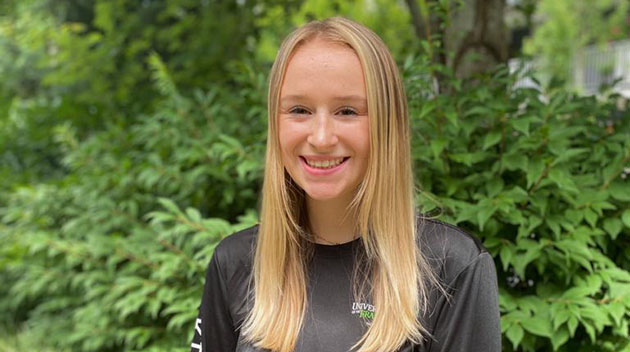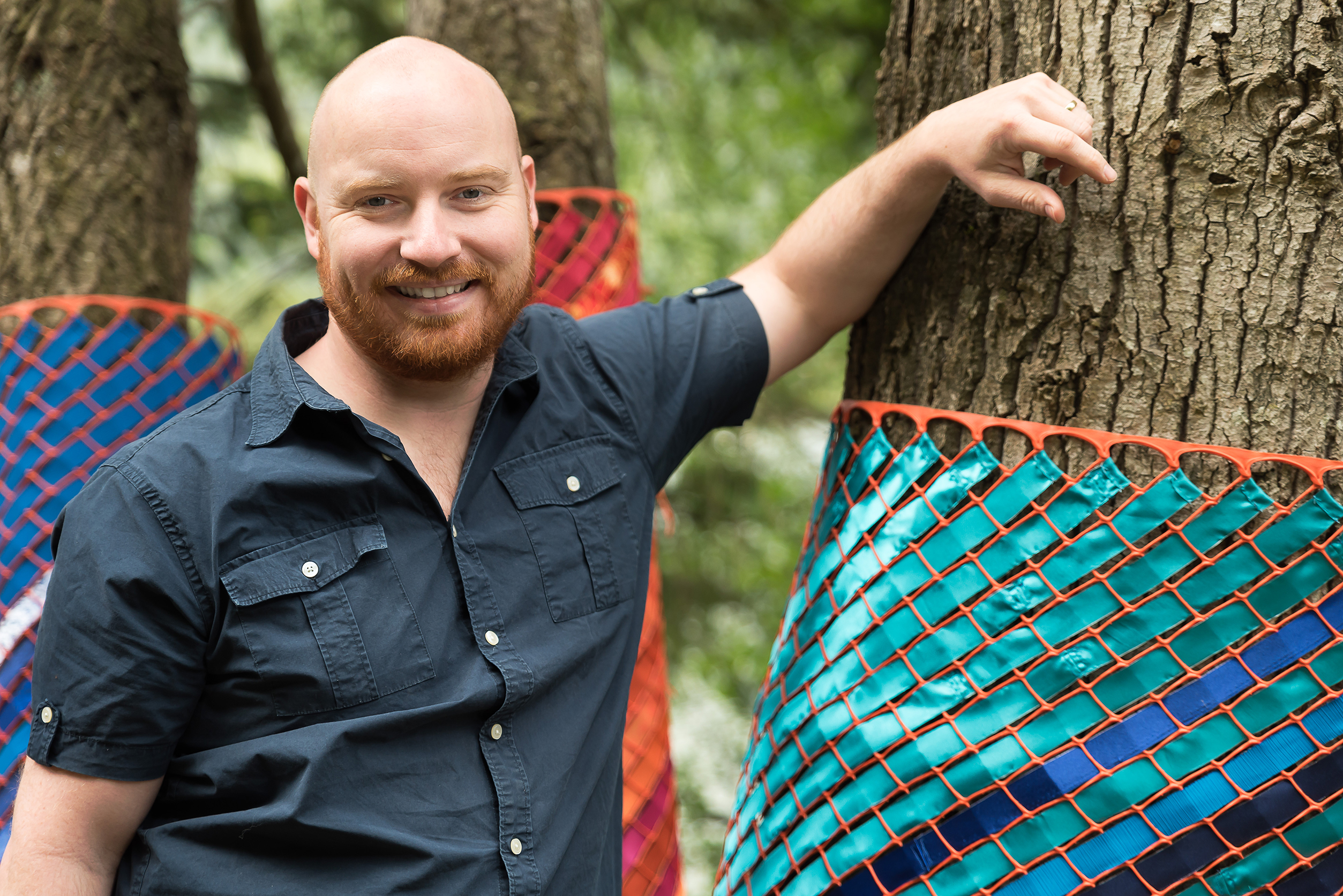Kin student learns that there’s more to research than looking through a microscope
 Research is just looking through a microscope, right? Katrina Frankenberger, a fourth-year kinesiology student with an extended minor in psychology, fell prey to this misconception when her first research opportunity presented itself.
Research is just looking through a microscope, right? Katrina Frankenberger, a fourth-year kinesiology student with an extended minor in psychology, fell prey to this misconception when her first research opportunity presented itself.
“I always thought of research as looking at something through a microscope. I now know that is really narrow-minded but it’s what we see in movies,” Katrina says.
Katrina has always been very active on campus participating as a KinPals mentor, Supported Learning Group leader, and president of the Kinesiology Student Association. In her third year of study, she decided to add research to the list and began a research assistant position with Dr. Iris Lesser’s Take a Hike cancer study.
“It was really eye-opening and humbling to talk with cancer survivors.”
In Winter 2020, Katrina stepped into what she recognizes as “one of the biggest positions I’ve had” coordinating the MYSelf Club — an exercise intervention program for children with behavioural issues in elementary school with Alison Pritchard-Orr and Dr. Kathy Keiver.
“Another coordinator and I were trained by an occupational therapist…and then we trained 40 student volunteers,” Katrina explains. “We headed up the pre-test days with physical and cognitive tests.”
Unfortunately, due to Covid-19, this project was put on hold until Winter 2021 when it moved to an online format. The intervention, streamed via MS Teams, and ran for eight weeks, with three 45-minute sessions per week. There were two cohorts of four children for a total of eight child participants. Katrina had to sort out complex technical challenges by streaming exercise sessions (created by an adapted-physical-activity kinesiology class) while also coordinating the running of each session, which included self-regulation activities and interoceptive questions directed at the participants.
“When Dr. Kathy Keiver and I decided to run a remotely delivered intervention for children with self-regulation challenges, we both stated that we could only accomplish something of this magnitude with Katrina as our research assistant and lead coordinator for the study,” project supervisor Alison Pritchard-Orr said.
Katrina has worked with other professors on several other projects. With Dr. Luisa Giles, she studied wildfire effects on physical activity levels. With Dr. Gillian Hatfield, she collected data and mentored students on a lower back pain research study and then a project for exercise intervention for people with Parkinson’s disease.
“It’s been great having the opportunity to participate in many different studies,” she recalls.
“The most enjoyable part has been getting to know the faculty outside the classroom on a more personal level,” Katrina remarks. “I’m very people-oriented, so I really enjoy getting to know the participants and all of the people I’ve worked with in the study.”
“It’s been so great to see Katrina grow as a student researcher,” notes Hatfield. “She went from helping me with data collection, to taking charge of data collection and mentoring other students. And now she is designing her very own study that she will be running in the future.”
When asked how the research experiences contributed to her career focus, Katrina describes how they brought clarity and direction to her career goals.
“Before I had any of this research experience, I really didn’t have a clear idea of what I wanted to do in kinesiology. I love kinesiology, and I knew I was in the right place, but I didn’t know what I was going to do with it. After all of my experiences, I have actually decided to do my master’s research in exercise and chronic disease.”
To anyone considering a research assistant position, Katrina suggests: “Take the opportunity — there’s no downside! If you find out you don’t like it, that’s one area you can eliminate from your career path, but if you love it, like me, you may find a whole career.”
For more information, contact Elicia Tournier at elicia.tournier@ufv.ca




